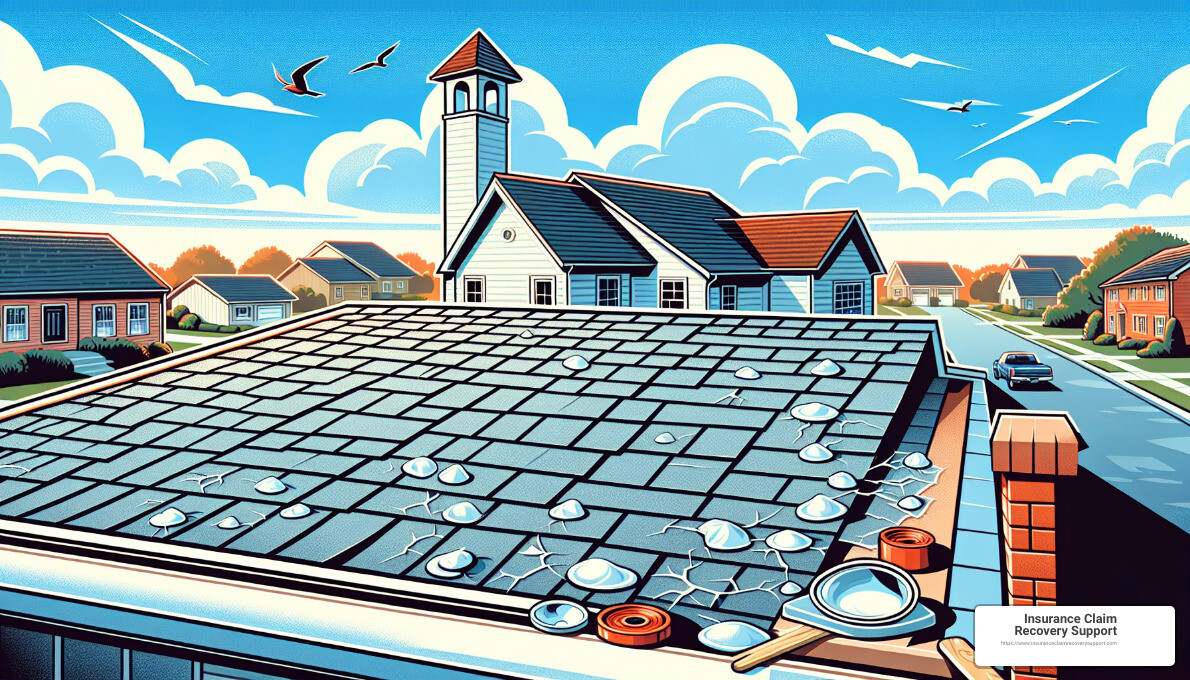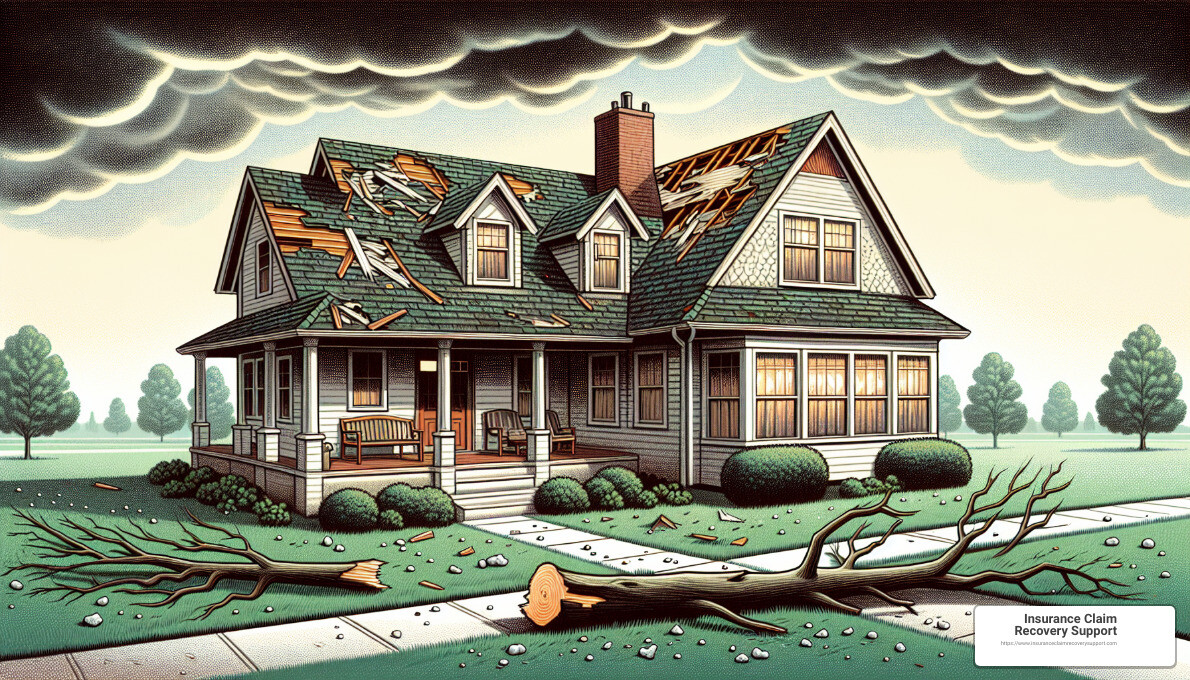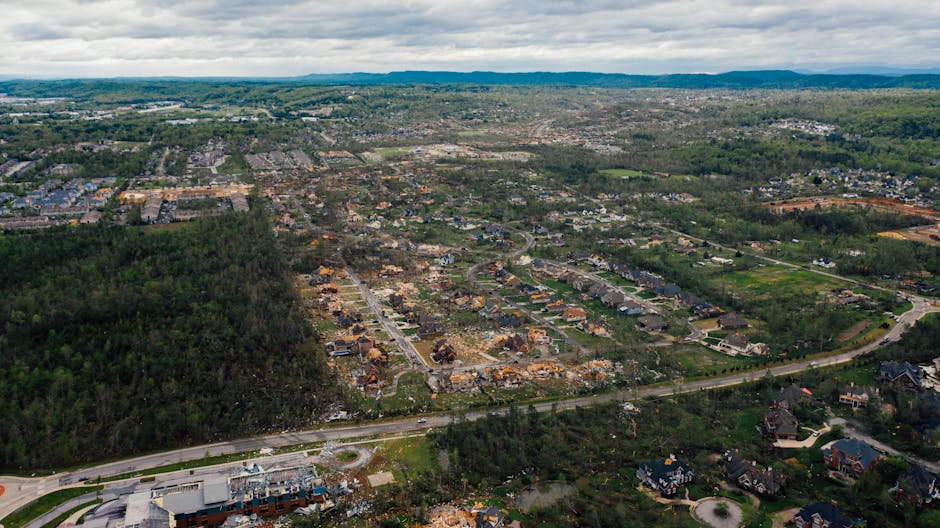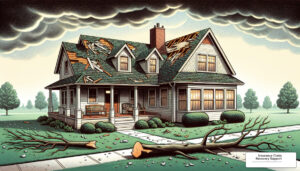Insurance adjusters are responsible for evaluating the extent of damage to a home after an incident like a fire or windstorm. And public insurance adjusters evaluate property loss on behalf of a policyholder and help them file insurance claims in exchange for a fee. They are licensed professionals who work for individuals and businesses – not insurance companies – and can save you a lot of money by ensuring your insurance company is paying the full amount it is responsible for under your policy
What is a public insurance adjuster?
Public insurance adjusters are the only property loss professionals who work on behalf of policyholders. Individuals and businesses hire public insurance adjusters when they need assistance filing a claim or feel a claim amount offered by an insurance company is incorrect.
Claims for flood, fire, smoke, wind and hurricane damage, as well damage due to other perils, can be filed and negotiated by public adjusters. Property losses might also result in other types of losses, such as business income, which public adjusters can evaluate.
What A Public Adjuster Does For You
Public insurance adjusters are experts in the details and language of insurance policies, as well as at filing and adjusting claims. They commonly have prior experience in construction or another related field, and use sophisticated software to perform an independent evaluation of a client’s property loss. They know exactly how to log and submit initial and supplemental claims for a policyholder.
Sample insurance adjuster claim information
The process of evaluating, completing and submitting a claim for a policyholder is remarkably exhaustive. In the table below are item descriptions, quantities and costs pulled from an example of a property insurance claim form. It’s unlikely a policyholder would be able to complete a form accurately with a similar level of detail, since every claim is different.
|
Item Description
|
Quantity
|
Unit Cost
|
Total Cost
|
|---|---|---|---|
| Replace Partial Wall Insulation | 206.00 SF@ | $1.25 | $257.00 |
| Replace Drywall Walls | 328.00 SF@ | $3.00 | $984.00 |
| Replace Base & Trim | 52.00 SF@ | $7.50 | $390.00 |
| Replace Wood Floor | 165.00 SF@ | $10.50 | $1,732.00 |
| Replace Carpeting | 22.00 SF@ | $36.00 | $792.00 |
| Replace Electric Outlet | 9.00 EA@ | $90.00 | $810.00 |
| Prime Paint Ceiling & Walls | 601.00 SF@ | $0.55 | $330.55 |
They also help clients negotiate with contractors and their insurer. Having an adjuster throughout the process not only protects the policyholder from any pitfalls due to inexperience, it is a time consuming process then labored by the adjuster.
Public vs company and independent adjusters
Public adjusters are one of the three main categories of insurance adjuster, and each is employed by a different group. Insurance companies, businesses and individuals all use insurance adjusters to evaluate property loss and determine the dollar amount a claim should pay out. To better cater to the different parties, there are three distinct types of insurance adjusters: company adjusters, independent adjusters and public adjusters.
Company insurance adjusters are employed by carriers and sent to evaluate claims filed by their company’s policyholders. Independent adjusters also work for insurance companies, but act more as consultants. Independent insurance adjusters are usually hired on an as-needed basis because of a surge in demand or for specific expertise.
Should I use a public adjuster?
Anyone considering filing a property insurance claim should also think about hiring a public adjuster, especially if the claim is for a high amount. As a policyholder, you have little to lose: Many public adjustment firms offer to visit a property loss free of charge to help a policyholder determine the severity of damage and whether they should file an insurance claim.
Even if a policyholder is confident in the dollar value of their property loss, it is good practice to get a second opinion on a costly event like a home insurance claim. Frequently, adjusters visit a home or business and find that their loss estimate is far below what it should be. Public adjusters are professionals and it’s unlikely they will leave out costs in their calculations that a policyholder might forget or not know about. For example, if part of a roof is destroyed by wind, a homeowners risks miscalculating the cost of a new roof and neglecting to include the cost of removing the damaged roof altogether.
Submitting an accurate, detailed claim is crucial to getting the right about of money from an insurance company to cover a property loss. Remember, even the best homeowners insurance companies will never voluntarily pay more than an amount claimed. Policyholders need to be conscious they are claiming the correct amount and hiring a public adjuster can help ensure that.
How much does a public adjuster cost?
Many public adjusters do not charge a fee to visit the site of a loss and determine whether they will work with a policyholder on a case. However, they do charge a fee for working with a policyholder to file a claim.
Typically, a public adjuster will charge a percentage of whatever a policyholder’s insurance carrier ultimately pays for a claim. For example, say a policyholder hires an adjuster with a 10% fee and their insurance company ultimately pays $100,000 for their claim. The policyholder would then owe the public adjuster $10,000.
The fee percentage varies between adjusters and is usually capped by local or state law. For example, in the state of Florida, fees cannot exceed 20% of a reopened or supplemental claim limit. There also is a 10% fee limit for claims resulting from an event named a state of emergency by Florida’s governor.
Public adjusters also cap the dollar amount their fees can reach per claim. Generally, public adjusters with less experience might cap their fees at $5,000 per claim. Experienced adjusters might cap their fees at much higher amounts, such as $10,000 or $15,000. For example, a public adjuster might collect a fee of $15,000 for a $350,000 claim, instead of their normal 20% fee which would amount to $70,000. They also might negotiate a lower percentage fee for large claims, such as property losses of $1 million or more.
How to choose a public adjuster
There are a number of things a policyholder can do to make sure they are hiring a good public adjuster. The first thing they should check is whether the public adjuster can legally practice. Public insurance adjusters must be licensed in every individual state they practice in. Like other professionals, they also must be bonded and participate in continuing education courses to maintain their licensure. Do not work with any other individual, such as a contractor or an attorney, that offers to provide claim adjustment services, if they are not licensed to do so. Practicing without a license is against the law and the license is an important benchmark of knowledge and qualification.
Will your adjuster be handling your claim personally? Some public adjustment firms might send one adjuster to do an estimate and another to follow up and thoroughly analyze a claim. As a policyholder, you might prefer to work personally with a single adjuster, but having a firm send more than one person might not be a bad thing. Another adjuster might take over a claim simply because they have more experience with a certain type of damage. For example, one adjuster might know their firm is interested in working on your fire claim, but another adjuster with the firm might have more experience with fire damages and handle your claim from that point on.
Ask for a referral or reference. A referral from an acquaintance that already worked with an adjuster is best. However, if no one you know can make a recommendation, ask the public adjuster under consideration for the contact information of some of their previous clients. Make sure others have had a good experience working with them.
We also recommend that you read reviews of public adjusters online. The National Association of Public Insurance Adjusters (NAPIA) has a directory of its members, though membership does not preclude someone from being a licensed or qualified adjuster for your claim.
Does your public adjuster have the right level of experience? Depending on the severity and complication of a claim, a policyholder might want to seek out a more experienced public adjuster. Ask what types of claims they have worked on, and do they have experience with your insurer? Ask public adjusters how long they have practiced and what types of claims they have worked on. An adjuster should display this information on their website and, generally, more experienced adjusters charge a higher fee. Remember, the number of years an adjuster has practiced or the volume of claims they handle each year are not necessarily indicators of their experience level. For example, a very experienced adjuster might only take on a dozen claims per year, but only because they might be choosing to work on large, complicated claims for high dollar amounts.
What are the adjuster’s terms of communication? A public adjuster generally handles a the entirety of a claim for their clients, but some policyholders might still want some level of involvement. Discuss this with your public adjuster before you hire them. You want to hire an adjuster with whom you are comfortable communicating throughout the process
When you need an attorney, not a public insurance adjuster
Policyholders who file a claim and receive a proposed settlement from their insurer they see as unfair might think they need to hire an attorney to dispute their claim. In that case, they usually do not – they need to hire a public adjuster.
In fact, policyholders commonly hire public insurance adjusters at that point in the claims process. A public adjuster can assist them in reopening a claim and filing a supplemental claim for additional payments with their insurer.
However, if an adjuster negotiates with an insurance company and still believes the policyholder is owed a larger settlement than the insurer is willing to provide, you may have to turn to litigation. Should a policyholder decide the cost of an attorney and filing a lawsuit against their insurance company is worth the desired settlement, then a lawsuit could be the next step.
It is possible that any insurance company might refuse to negotiate with a public adjuster or refuse to pay a policyholder’s desired settlement. In that situation, hiring an attorney and litigation would be the only option. Fortunately for policyholders, this is fairly uncommon.









